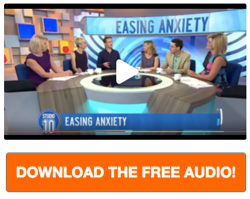If you really have to point fingers and blame something for your panic attacks and general anxiety disorder, it will have to be your own mind. The world around you does not change, and there will always be things that you can’t control. However, you can control the way your mind reacts to these things. If you can regulate the way you think about things, then you can calm your anxiety and be one step closer to fixing your problem.
Improve Mental Health
Improving your mental health means not cluttering it up with thoughts that only lead you to fear more things. Some say that this is like you’re acting stupid. But I would rather call it ‘not overthinking’. Overthinking could make you more prone to the imaginary threats that have festered inside your head for a long time. If you’re worried about acting stupid, don’t. It is often said that anxiety problems rarely happen to naturally stupid people. You’re smart, which is why the threats you imagine seem more real to you.
Because you know you’re intelligent, you can improve your mental health. Eat food that can contribute to a better chemical balance inside your body. Drink water regularly so that your body temperature stays the same. A high body temperature could mean you’re always feverish. The same goes when your body gets too cold. Physical health is always related with mental health.
Don’t drink alcohol, because this only gives you a false sense of comfort. When the booze wears off, you still have a problem, not to mention a major hangover. The most alarming thing about using alcohol to forget your problems is that your mental health suffers. Many long-time alcohol drinkers don’t realize that they aren’t making sense anymore even in normal conversation. But believe me, others can tell that they are not as smart as they used to be.
Build Your Immunity to Stress
Self soothing and watching your mental health can make a big difference in your recovery. Stress will always be around you, whether in your workplace or in your home. But this does not mean that you can simply let stress affect you. If you can push away stress at arm’s length, your mind can function better. When stress gets to you, try taking a deep breath and telling yourself “It’s ok”. Affirmations and self-calming techniques really help in this scenario.
Therapy
Self-help methods are great, and most of the time they are enough. But if you’re still hurting and a bit panicked that you’ve had a relapse despite your efforts to learn how to calm anxiety, it may be time for another session with your psychologist. Describe how you’ve been doing and focus on the times when you’re truly relaxed. Help your psychologist figure out what could be causing all the stress.
Never think that you’re having a relapse just because the anxiety came back after some time. Learning how to calm anxiety is an ongoing process. Fortunately for us, there are more tools like Linden now that let us do that.
